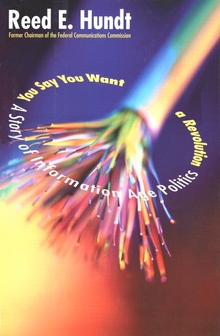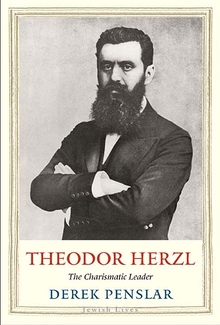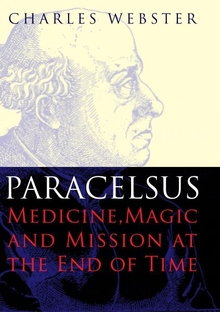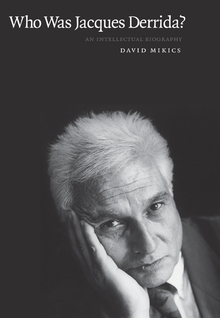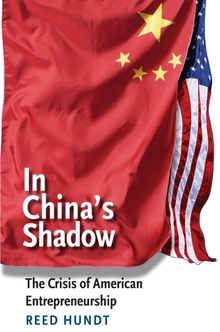You Say You Want a Revolution
WARNING
You are viewing an older version of the Yalebooks website. Please visit out new website with more updated information and a better user experience: https://www.yalebooks.com
A Story of Information Age Politics
Reed Hundt
Out of Print
Depending on the leadership of his high school classmate Al Gore and finding unexpected allies in the ranks of free market ideologues, Hundt led the FCC to make the decisions that helped start a wave of entrepreneurship, which in turn has given the United States the world’s leading Internet economy. As the memoir shows, every decision involved prodigious political battles—between existing industries and start-ups, between Newt Gingrich and the Clinton-Gore White House, between inside-the-Beltway lobbyists and the new grassroots advocacy of e-mails, between the politics of money and the politics of ideas. In the same period, the often ignored and historically maligned FCC was the place where government decided whether to undertake the largest national initiative to reform K–12 education in the country’s history: the program to connect every classroom to the Internet by the year 2001.
Hundt’s report from the political battlefield offers significant insight into the motives and personality not only of Al Gore but other prominent figures in political life, as well as many of the media moguls of our time. Told with great energy and wit, it is a tale that inspires both concern for and confidence in our democracy in the information age.
“Reed Hundt’s engaging book about his days at the FCC illuminates how public policy is formulated. . . . Hundt’s tale is told colorfully. His sense of humor and self-deprecation is continuously apparent. The writing style is conversational, moving from anecdotes and personality sketches to political maneuvers and broad national and international telecommunications and trade issues.”—Jeffrey Schiffel, Journal of Government Information
"Reed Hundt was a referee in the free-for-all that was the transformation of the US communications world. As often happens to referees, he was bustled and pummeled by all sides. Yet, he clearly enjoyed it all and lived to tell the tale—cheerfully and intelligently."—Andrew S. Grove, Chairman of the Board, Intel
“In what I believe will someday be looked upon as the period of the Big Bang in communications, this book tells you what happened across the spectrum and why.”—Barry Diller, Chairman and CEO, USA Networks., USA Networks
“Connecting classrooms to the Internet is critical to the future of our nation’s schools. This book’s narrative of the battle to fuse the Internet with education demonstrates the power of ideas in the information age.”—George Lucas, Chairman, The George Lucas Educational Foundation
"Reed Hundt’s fascinating story of the tensions between policy-making and politics inside agency overseeing the high-tech future of the nation will be required reading for everyone involved in making media, teaching media or setting the rules under which media operates. His vision of how telecommunications should serve young audiences provides a blueprint for negotiating government action on behalf of children."—Peggy Charren, Founder, Action for Children’s Television
“Reed Hundt gives us a thoughtful, carefully detailed, and greatly informative chronicle of his important years at the Federal Communications Commission. Anyone wishing to know more about the inner workings of a crucial federal agency at a critical time in the development of information technology should read this book.”—Robert B. Reich
“Amazingly, Hundt manages to turn his close encounters with complex bureaucratic battles into an amusing odyssey. . . . With deft writing and intelligent, humorous insights, he puts his own imprint on that time.”—Catherine Yang, Business Week
“In this insightful and good-natured memoir of his experiences at the helm of the ‘deep-inside-the-Beltway’ regulatory agency, Hundt recounts the savage battles he waged to help introduce competition and technological change into America’s communications markets, all the while shielding consumers from profit-hungry cable and telephone lobbies.”—Publishers Weekly
“Reed Hundt, former chairman of the Federal Communication Commission, was at the center of the Telecom turnaround. In You Say You Want a Revolution, he describes his stormy tenure at the FCC.”—Daniel J. Silver, Wall Street Journal
“E-rate funding to link classrooms was a key achievement, but Hundt’s story also includes cable rate regulation, international trade talks, and quality children’s television, as well as the day-to-day politics of building consensus and coalitions. Hundt’s “there at the creation” memoir should become more valuable as the full consequences of this “revolution” become clearer.”—Booklist
“The stories [Hundt] tells from his days inside [the FCC] are lively and instructional, especially for the high-tech community. . . . It is the average reader who should read Hundt’s book, not only the high-tech entrepreneur who might learn from whence his current opportunities sprang.”—Lauren Barack, Industry Standard
“Memoirs by regulatory agency appointees are rare, especially memoirs published so soon after their government service has ended. So this book by Hundt . . . ought to be mined for lessons on how government really works. . . . Hundt’s account is a valuable addition to the sparse insider literature of regulatory agency decisonmaking.”—Steve Weinberg, Christian Science Monitor
“A finely written book. . . . You Say You Want a Revolution shows how difficult change can be and how skilled Hundt and others were in managing the politics that made change possible.”—Gregory F. DeLaurier, Boston Book Review
“You Say You Want a Revolution is essential reading for understanding the role of telecommunications law in our information age.”—Paul M. Schwartz, New York Law Journal
“You Say You Want a Revolution, chronicles the struggles between consumer interests and technological innovation.”—George
“Novels and histories about government regulators are few and far between. Hundt succeeds, thanks to a knack for storytelling and a clear writing style.”—James H. Johnston, Legal Times
“Breaking the usual pattern of the Washington memoir, Hundt writes as much about his mistakes as his successes, which makes the book both useful and fun to read. . . . In principle, the FCC simply implements the laws passed by Congress. But Hundt’s book grants an insiders view of the complex mix of politics, personal loyalty, special interest pressure, and idealism that determines how the agency really sets the rules.”—Danny Hillis, Harvard Business Review
“Delightful. . . . The drollest and most honest-sounding memoir of public service that I have seen in years. . . . Hundt gets in his digs, mainly at the business moguls he was supposed to regulate, but he is artful enough that the self-deprecating anecdotes and throwaway lines come across as genuinely funny rather than implicitly boastful.”—James Fallows, New York Review of Books
“[Hundt] has written a highly charged book about political maneuvers at the highest levels. It is a frank, off-beat look at the political climate of the time, particularly concerning the nascent Internet development. . . . A real insider’s account, rich in details.”—Colorado Springs Gazette
“The author’s accounts of both the maneuvering and compromises required to turn an idea into law are fascinating, as are his portraits of key players.”—Yale Alumni Magazine
“[Hundt’s] sharply written story, told with energy and wit, makes vivid both the horrors and the satisfactions of public life and public service."—Techdirections
Publication Date: April 10, 2000

